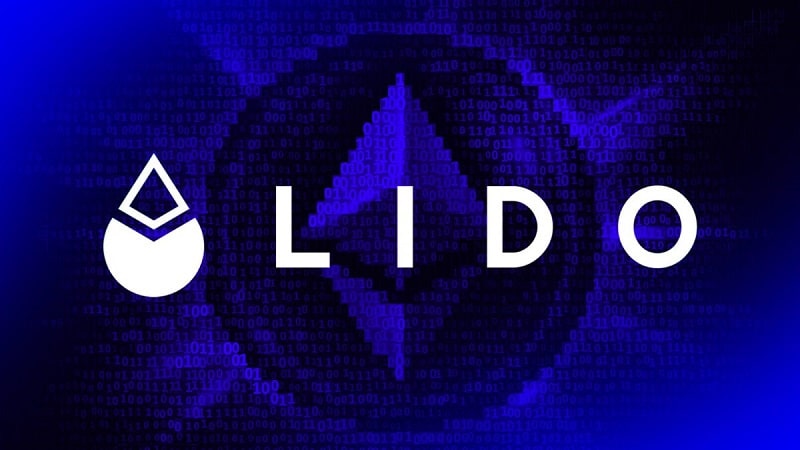
Lido DAO has emerged as a prominent player, offering simplified staking services and community-driven governance.
This comprehensive overview explores the role of Lido DAO in decentralized staking and highlights its impact on the broader DeFi landscape. If you are new to Bitcoin, consider expanding your portfolio by exploring Binance USD, as it provides a stable and regulated digital asset that can complement your Bitcoin holdings.
Introducing Lido DAO

At its core, Lido DAO offers a platform where users can stake their tokens and participate in the consensus mechanisms of various proof-of-stake (PoS) networks. By pooling users' funds together, Lido DAO creates a collective stake, enhancing the overall security and decentralization of the staking process.
Lido DAO's governance model is a fundamental aspect of its operations. Token holders of Lido DAO have the power to actively participate in decision-making processes, such as proposing and voting on changes to the protocol. This decentralized governance structure ensures that the community's voice is heard, enabling a collaborative approach to managing and improving the platform.
The primary objective of Lido DAO is to simplify staking and remove barriers to entry for retail investors. By abstracting away the complexities associated with directly staking on PoS networks, Lido DAO offers a user-friendly experience. Users can delegate their tokens to Lido DAO, which handles the technical aspects of staking, including infrastructure maintenance, validator node management, and reward distribution.
A key advantage of staking with Lido DAO is the ability to engage in fractional staking. This means that users can stake any amount of funds, regardless of the minimum requirements set by the underlying PoS networks. This flexibility empowers individuals to participate in staking with smaller amounts, encouraging wider adoption and inclusivity within the ecosystem.
Security is a top priority for Lido DAO. By employing a diversified network of validators and implementing robust monitoring mechanisms, Lido DAO mitigates risks associated with single-point failures or attacks on individual validators. This multi-layered security approach ensures the safety and integrity of the staked assets.
Lido DAO's Role in Decentralized Staking
The community of LDO token holders has the power to make important decisions regarding the protocol's operations, upgrades, and future developments. This decentralized governance model ensures that the platform evolves based on the consensus and input of its participants. It empowers token holders to actively shape the direction of Lido DAO and contribute to its long-term success.
In addition to governance, Lido DAO provides staking as a service. It simplifies the staking process by abstracting away the complexities associated with directly staking on PoS networks. Users can delegate their tokens to Lido DAO, which handles the technical aspects of staking, such as maintaining infrastructure, managing validator nodes, and ensuring regular rewards distribution.
By leveraging economies of scale, Lido DAO enables fractional staking. This means that users can stake any amount of funds, regardless of the minimum requirements set by the underlying PoS networks. It eliminates barriers to entry and allows retail investors to participate in staking with smaller amounts, thus democratizing access to the benefits of decentralized staking.
Furthermore, Lido DAO emphasizes security and risk mitigation. By distributing the staked assets across multiple validators, it reduces the risks associated with single-point failures or attacks on a single validator. This diversification of validators and continuous monitoring of their performance ensures the overall integrity and security of the staked assets.
LDO Token: Utility and Functionality

In addition to governance rights, the LDO token offers staking and earning opportunities for its holders. By staking LDO, token holders can contribute to the security and decentralization of the Lido DAO network while earning rewards in return. This alignment of interests incentivizes active participation and engagement from token holders, fostering a sense of ownership and responsibility.
The tokenomics of LDO are designed to ensure a fair and equitable distribution among participants. LDO tokens can be obtained through various mechanisms, including liquidity mining, participation in governance activities, and purchasing from secondary markets.
Furthermore, the LDO token acts as a representation of the value and success of Lido DAO. As the platform continues to grow and gain traction within the decentralized staking ecosystem, the demand for LDO may increase, potentially leading to price appreciation for token holders.
Moreover, the LDO token serves as a means of aligning incentives and promoting community involvement. By granting voting rights and staking rewards, Lido DAO incentivizes token holders to actively contribute to the network's growth, security, and overall success.
Conclusion
Lido DAO's innovative approach to decentralized staking, coupled with its governance model and commitment to security, has positioned it as a leading platform in the DeFi ecosystem. By providing accessibility, simplicity, and community involvement, Lido DAO continues to contribute to the growth and decentralization of staking in the crypto space.










